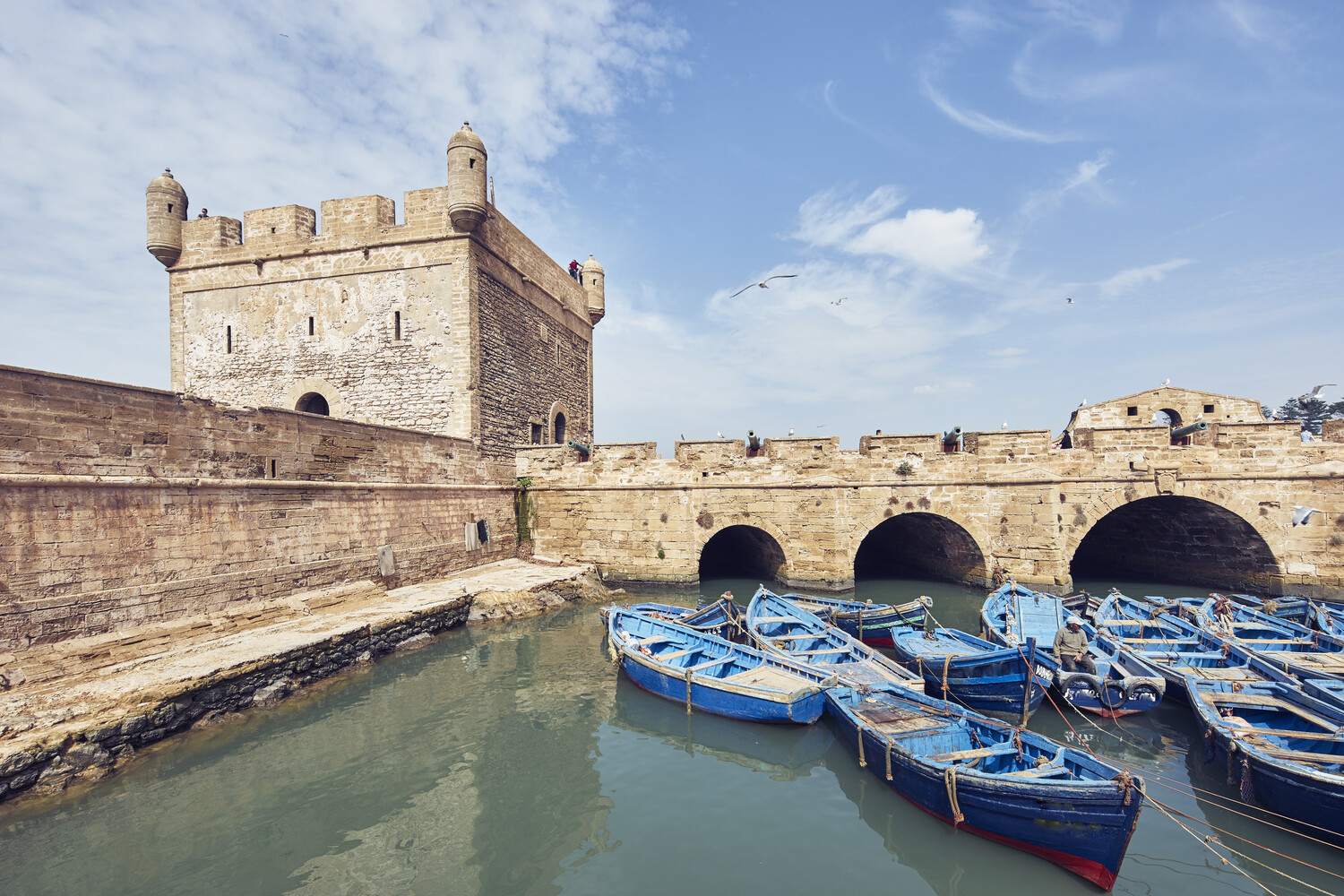
Essaouira vacation with The Best of Morocco
The word Essaouira means image. Observed from any angle, Essaouira is a perfect photograph. Behind its purple ramparts and inside its whitewashed medina with blue doors lies a city that has been influenced by various cultures (Berber, Carthaginian, Portuguese, English, Bambara and others). It was the Jewish traders that once formed the majority of the population and it was they who transformed Essaouira into what became Morocco’s most prosperous city in the 17th and 18th centuries.
Today, the creative nature of Essaouira is unveiled in the ateliers of its artisan workers located in recesses under the Skala fortress where Orson Wells filmed most of Othello in 1949. This setting transforms the city’s craftsmen into artists, its street orators into poets and its musicians into soul healers. The most celebrated of its craftsmen create marquetry and sculptured wood from the roots of the Thuya tree.
Essaouira stands on a vast bay sweeping south with miles of superb sandy beach and wooded hills dominating the skyline to the east. The medina with its honeycomb of souks lends a potent mystique to the town.
Probably the best known coastal tourist town of Morocco, Essaouira is nevertheless called the windy city and is more of a town on the coast than a beach resort. The fortified harbour is a hive of activity with fishing nets laid out on the quayside, boats unloading their catches, fish auctions and stalls serving seafood sizzling on grills.
Like the other cities, Essaouira has big hotels along with the medina riads.
Gnaoua and World Music Festival
Is held in Essaouira every June.
The Gnaoua and World Music Festival is held in Essaouira every June, and has been running for over 10 years.
There are around ten stages featuring various types of music: world and jazz musicians perform each eveniong on the stage of Bab Sebaa (previous years including the oud-playing brothers Trio Joubran, the blues of Justin Adams and traditional Korean percussions); Famous groups feature on the Moulay Hassan stage (Eric Legnini, KyMani Marley, the National Orchestra of Barbes); in the medina, smaller stages offer gnoaua music day and evening, as well as other traditional Moroccan styles such as Ganga, Haddarates and Hmadcha.
